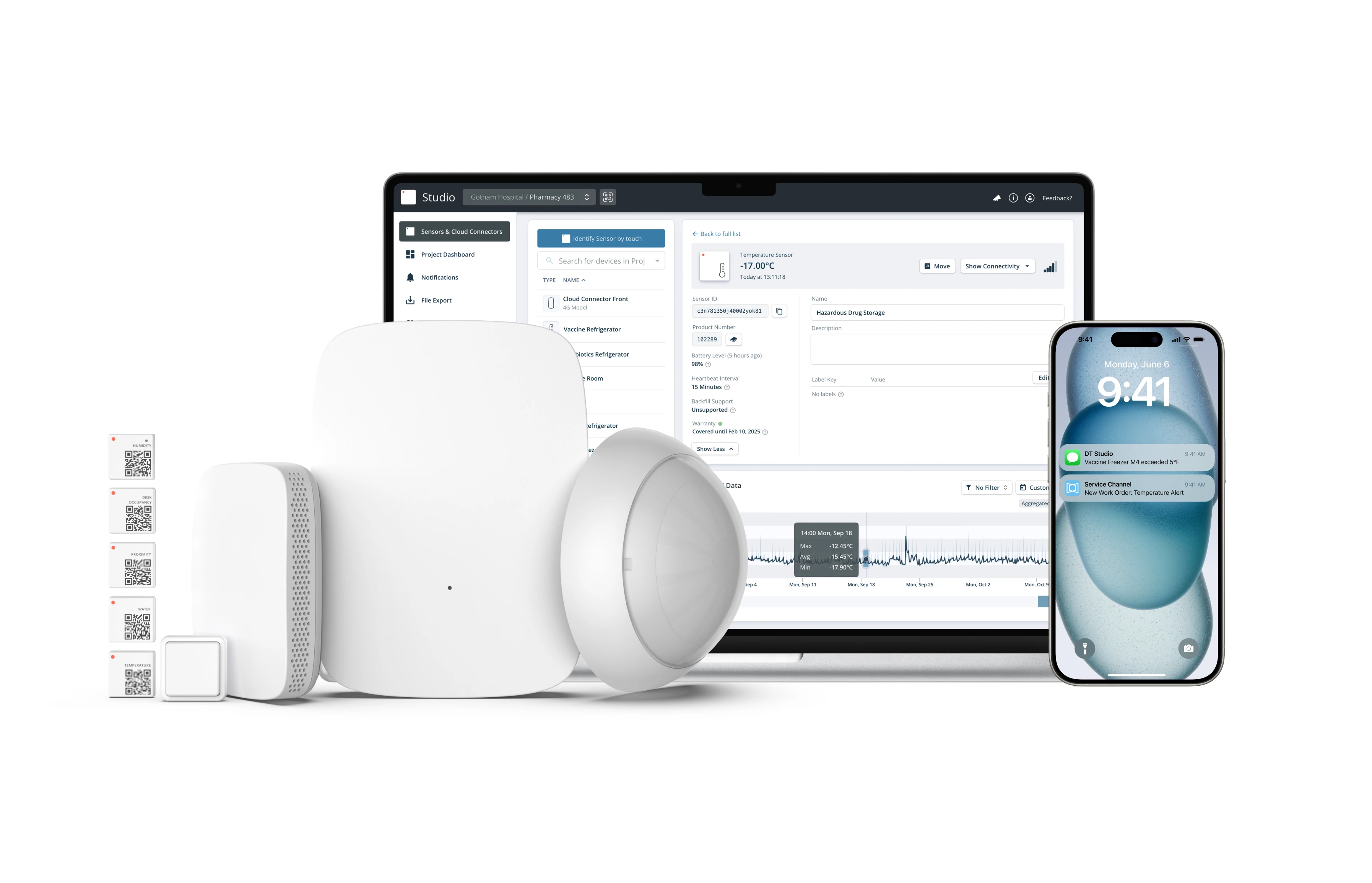Legacy Meets Technology: Saving Hundreds of Maintenance Costs at The Royal Opera House

The Royal Opera House is home to the Royal Opera and Royal Ballet companies. Thousands of opera & ballet enthusiasts have enjoyed hundreds of iconic shows under its ceiling, from Carmen to Madama Butterfly.
The ceiling is as much of a cultural staple as the building itself. The frieze of the intricate ceiling, covered with gold paint, is one of the oldest in Europe. The building also houses important manuscripts and old documents in its archives. It thus requires careful attention, humidity regulation, and maintenance in order for legacy to be preserved.
The Royal Opera House Requires Regular Maintenance
-min-jpeg.jpeg)
The Royal Opera House has been working with the engineering team at Integral (Disruptive Technologies Preferred Partner) since 2019. 16 on-site Integral engineers manage the building’s mechanical and electrical maintenance, including innovation and energy management.
The Royal Opera House requires special lighting, which generates a lot of heat. To combat the heat, the building has multiple cooling equipment and fans. The cooling equipment produces condensation and water, which can damage the ceiling, or in extreme cases, lead to its collapse. To prevent this from happening, the Integral engineering team had to do manual checks twice a day. This was labor-intensive and inefficient.
Integral had previously deployed the pipe monitoring solution for legionella compliance from our Expert Partner Infogrid. To help with the preservation of the ceiling and old documents, Integral once again turned to Infogrid.
Integral Saved Hundreds of Labor Hours

In total, there are now 283 sensors fitted at the Royal Opera House.
213 tap sensors help with the automation of legionella compliance, which has reduced the need for manual work. 13% of mundane resource tasking is now replaced by predictive and preventative maintenance activities.
3 humidity sensors and 2 temperature (trace heating) sensors drive trend analysis on plant behavior and allow the teams to manage air temperature and moisture levels more accurately. Thanks to Infogrid’s platform, Integral now receives alerts for cooling and leakage and is able to check that the equipment’s temperature and humidity are within normal operating limits.
Data from these sensors have helped prevent breakdowns and assure air quality in areas where sensitive materials are stored. In addition, the solution provides historical sensor data about temperature and humidity. This helps the Integral team spot trends and make proactive decisions that protect and preserve the building, shifting maintenance from reactive to preventative.
65 water sensors are dispersed across the plant on the building’s sixth floor to prevent any incidents manifesting in moisture damage to the floor below. The fifth floor acts as the base structure where the unique ceiling friezes are attached to.
Leak detection on the fifth floor has especially become a critical automated monitoring activity. Thanks to 24/7 real-time monitoring, the service value it provides has been game-changing. The data-driven, condition-based solution dramatically reduced the need for manual leak checks, saving the Integral team hundreds of labor hours that can now be better spent on more productive, value-add maintenance tasks.
“The Royal Opera House is a unique historical building, with some beautiful heritage, which it is our mission to preserve for future generations. Integral’s use of Infogrid’s cutting edge technology to assist in the maintenance of the building has not only resulted in reduced risk, but has added value by freeing up the Facilities Team to concentrate their efforts on maintaining other parts of the building." A Royal Opera House Spokesperson

Data for Energy Optimization
Get Started


.png)


